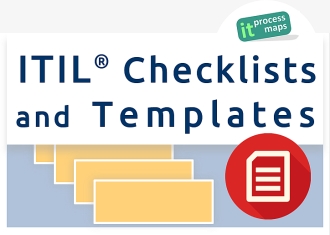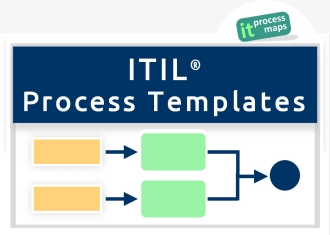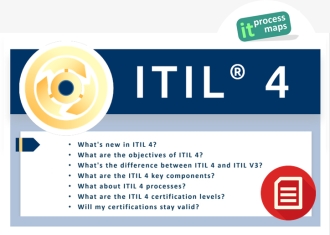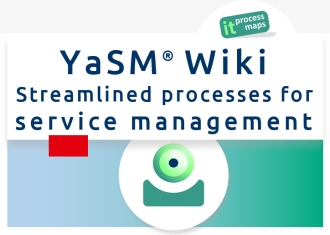ITIL Service Transition: Difference between revisions
No edit summary |
m Andrea moved page ITIL V3 Service Transition to ITIL Service Transition: More generic name of the page. |
||
| Line 31: | Line 31: | ||
</imagemap> | </imagemap> | ||
As per '''ITIL 2011''', the following processes are part of the ITIL stage [[ITIL V3 Service Transition|Service Transition]]: | |||
<p> </p> | <p> </p> | ||
| Line 57: | Line 57: | ||
;[[Knowledge Management]] | ;[[Knowledge Management]] | ||
:Process Objective: To gather, analyze, store and share knowledge and information within | :Process Objective: To gather, analyze, store and share knowledge and information within an organization. The primary purpose of Knowledge Management is to improve efficiency by reducing the need to rediscover knowledge. | ||
<p> </p> | <p> </p> | ||
| Line 65: | Line 65: | ||
* [[ITIL KPIs Service Transition|KPIs for Service Transition]] | * [[ITIL KPIs Service Transition|KPIs for Service Transition]] | ||
* [[ITIL-Checklists# | * [[ITIL-Checklists#ITIL Service Transition Templates|Checklists for Service Transition]] | ||
* [[Roles | * [[ITIL Roles#ITIL roles and boards - Service Transition|ITIL Roles within Service Transition]] | ||
<p> </p> | <p> </p> | ||
| Line 84: | Line 84: | ||
|- | |- | ||
|} | |} | ||
<br style="clear:both;"/> | |||
<html><a rel="author" href="https://plus.google.com/111925560448291102517"><img style="margin:0px 0px 0px 0px;" src="/skins/Vector/images/itpm/bookmarking/gplus.png" width="16" height="16" title="By: Stefan Kempter | Profile on Google+" alt="Author: Stefan Kempter, IT Process Maps GbR" /></a></html> | |||
<!-- This page is assigned to the following categories: --> | <!-- This page is assigned to the following categories: --> | ||
[[Category:ITIL V3]][[Category:ITIL 2011]][[Category:ITIL stage]][[Category:ITIL process|3]][[Category:Service Transition|!]] | [[Category:ITIL V3]][[Category:ITIL 2011]][[Category:ITIL stage]][[Category:ITIL process|3]][[Category:Service Transition|!]] | ||
<!-- --- --> | <!-- --- --> | ||
Revision as of 12:29, 14 July 2013
<seo metakeywords="service transition, itil service transition, itil transition, itil v3 transition, itil v3 service transition" metadescription="ITIL Service Transition: Definition - Processes - Additional information on Service Transition: ITIL Roles, Checklists, KPIs..." />

ITIL Service Transition
The objective of ITIL Service Transition is to build and deploy IT services. Service Transition also makes sure that changes to services and Service Management processes are carried out in a coordinated way.
Part of: IT Service Management
Processes: ITIL Service Transition
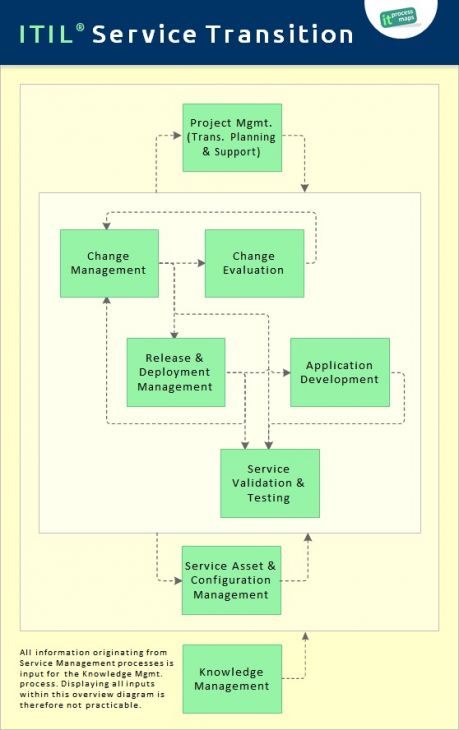
As per ITIL 2011, the following processes are part of the ITIL stage Service Transition:
- Change Management
- Process Objective: To control the lifecycle of all Changes. The primary objective of Change Management is to enable beneficial Changes to be made, with minimum disruption to IT services.
- Change Evaluation
- Process Objective: To assess major Changes, like the introduction of a new service or a substantial change to an existing service, before those Changes are allowed to proceed to the next phase in their lifecycle.
- Project Management (Transition Planning and Support)
- Process Objective: To plan and coordinate the resources to deploy a major Release within the predicted cost, time and quality estimates.
- Application Development
- Process Objective: To make available applications and systems which provide the required functionality for IT services. This process includes the development and maintenance of custom applications as well as the customization of products from software vendors.
- Release and Deployment Management
- Process Objective: To plan, schedule and control the movement of releases to test and live environments. The primary goal of Release Management is to ensure that the integrity of the live environment is protected and that the correct components are released.
- Service Validation and Testing
- Process Objective: To ensure that deployed Releases and the resulting services meet customer expectations, and to verify that IT operations is able to support the new service.
- Service Asset and Configuration Management
- Process Objective: To maintain information about Configuration Items required to deliver an IT service, including their relationships.
- Knowledge Management
- Process Objective: To gather, analyze, store and share knowledge and information within an organization. The primary purpose of Knowledge Management is to improve efficiency by reducing the need to rediscover knowledge.
Additional Information on Service Transition
Downloads
Overview Service Transition
|
Use the following links to open the process overview of Service Transition showing the most important interfaces: |
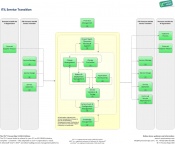 |


